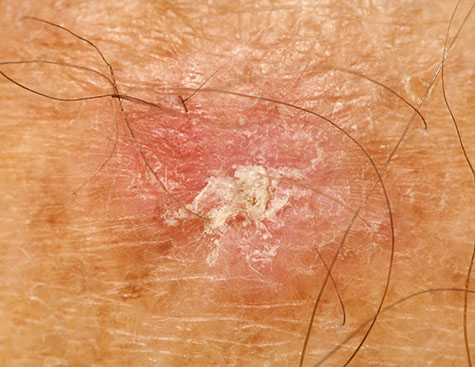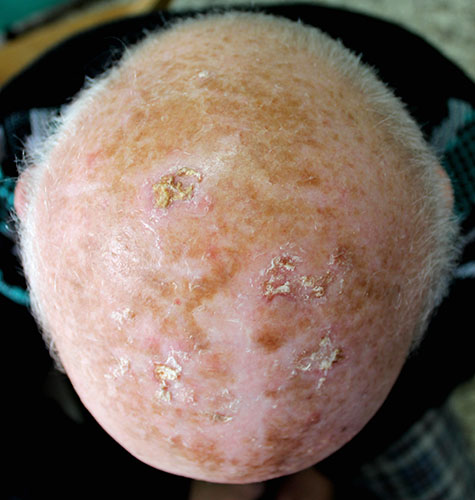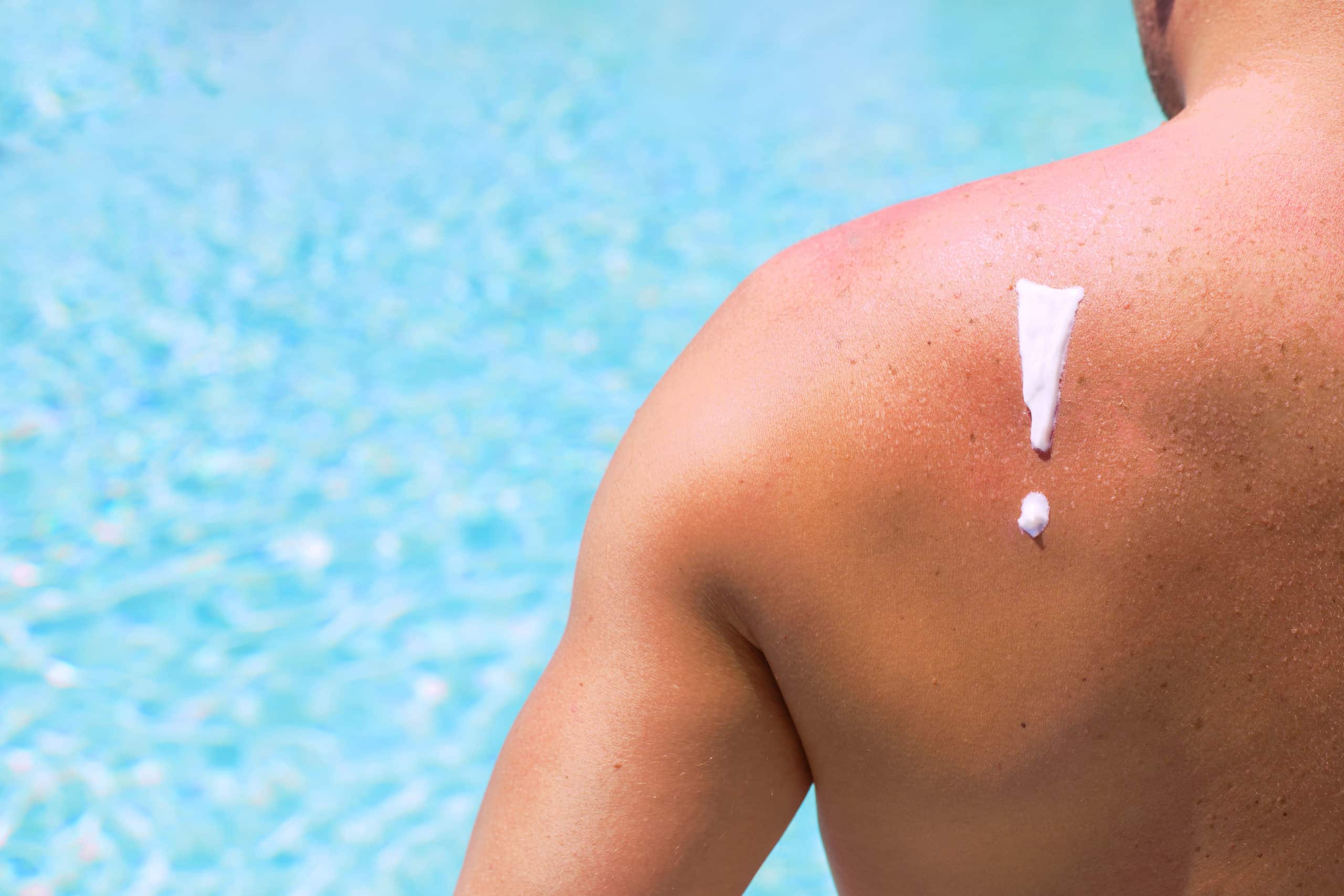What Causes Actinic Keratoses?

Actinic Keratoses are caused by chronic exposure to UV light which permanently damages skin cells. These damaged skin cells occasionally will evolve into precancerous growths called actinic keratoses.
You may have experienced damaging UV exposure from:
- Chronic exposure to natural sunlight
- Tanning bed use
Who Gets Actinic Keratoses?
Nearly anyone can develop actinic keratoses, but some risk factors that increase your risk include:
- Fair skin that burns easily
- Blond or red hair
- Light-colored eyes
- Older age (50 years or older)
- Weakened immune system (ex. immunosuppression)
- Tanning bed use
- A significant amount of time spent outdoors
How Can I Prevent Actinic Keratoses?
The most important steps you can take to prevent actinic keratoses are to diligently wear sunscreen, wear sun-protective clothing, and limit your UV exposure as much as possible. To prevent actinic keratoses, you should:
- Wear broad-spectrum sunscreen SPF 30 or higher daily
- Reapply sunscreen frequently
- Avoid tanning (both in tanning beds or natural sunlight)
- Wear protective clothing, including sunglasses and wide-brimmed hats
- Perform regular self-exams to check for signs of actinic keratoses and skin cancer

Why Treat Actinic Keratoses?
Treating actinic keratoses is important to reduce your risk of developing skin cancer. We know that actinic keratoses can occasionally develop into localized skin cancers called squamous cell carcinomas and thus it is important to treat them promptly to prevent this evolution to skin cancer. Aside from the importance of preventing skin cancer, actinic keratoses can also be cosmetically bothersome and irritating, and some patients elect to treat them for this reason as well.
How Can I Treat Actinic Keratoses?

Your board-certified dermatologist will diagnose actinic keratoses through a careful physical exam, while also closely inspecting for any other concerning skin lesions during your visit. Following a diagnosis of actinic keratoses, these lesions can then be treated using one or more treatment options. The recommended treatment option for you will vary depending on the size, number, and location of the growths. Some options include:
- Cryotherapy
- Curettage
- Photodynamic therapy (PDT)
- Topical 5-fluorouracil
- Topical ingenol mebutate
- Topical diclofenac
- Chemical peels
Schedule an Appointment
If you notice signs of actinic keratoses, it is important to consult with a board-certified dermatologist to ensure the health of your skin and address the skin lesions.
To schedule an appointment at Arlington Dermatology, please call our office or contact us online.




